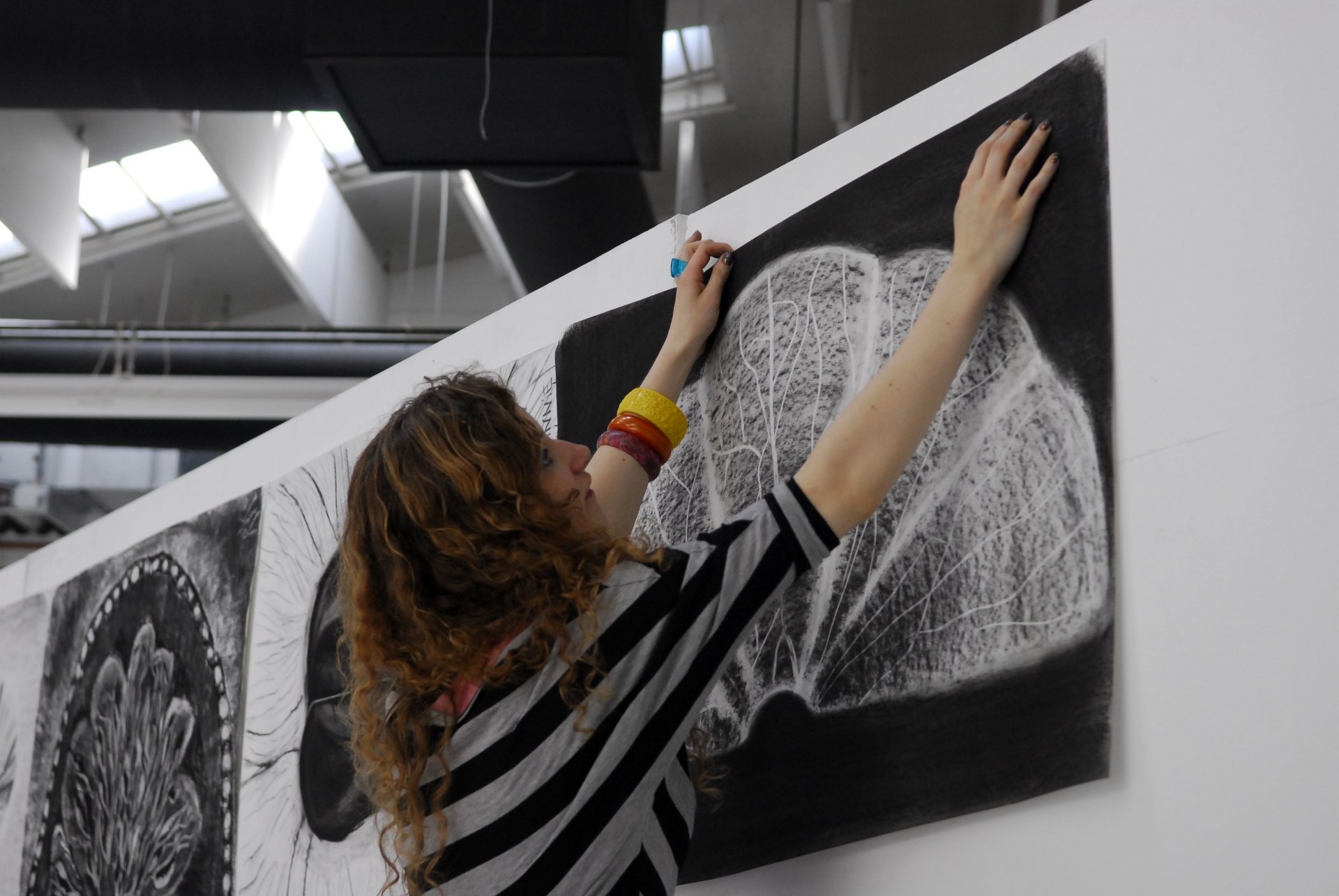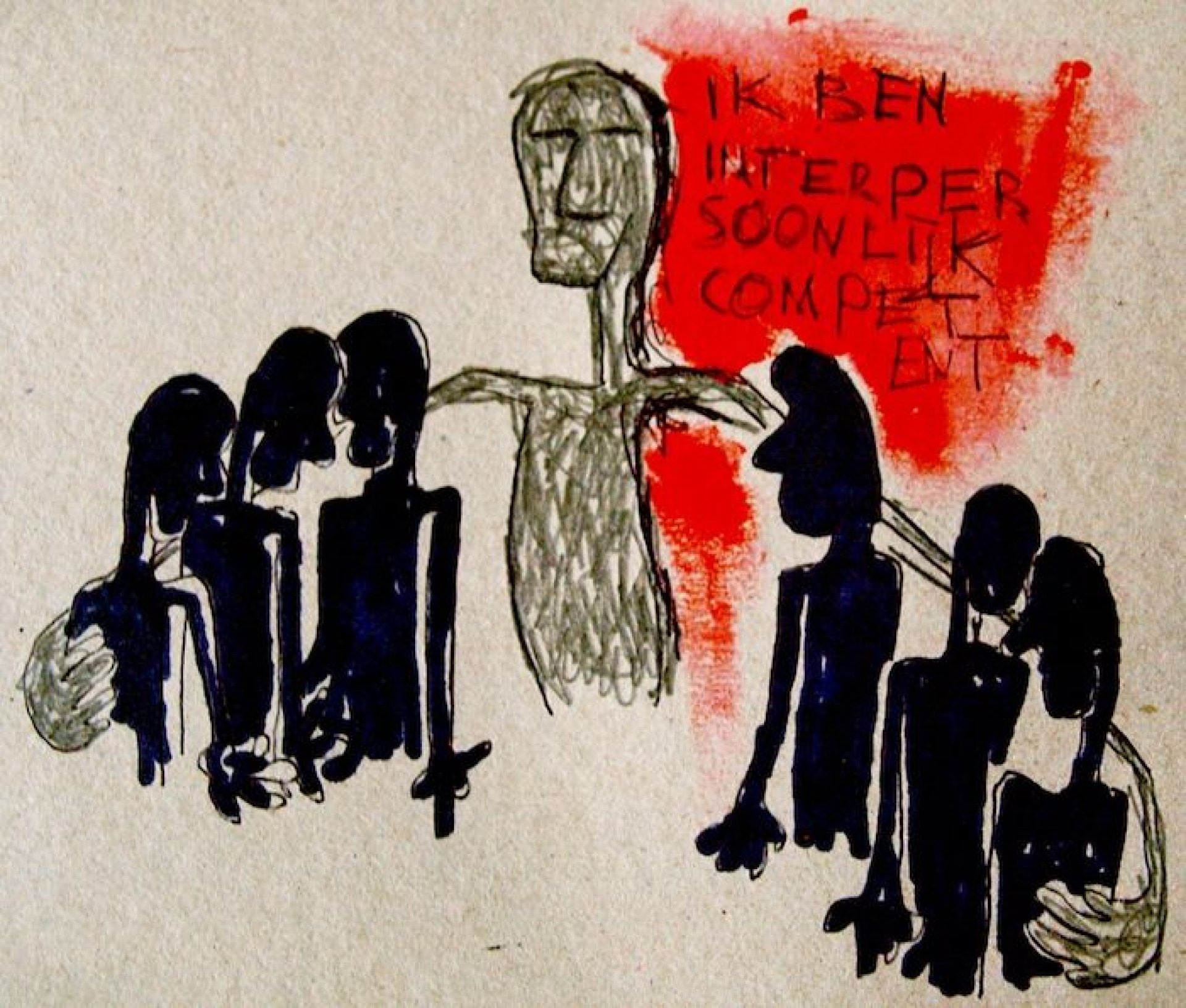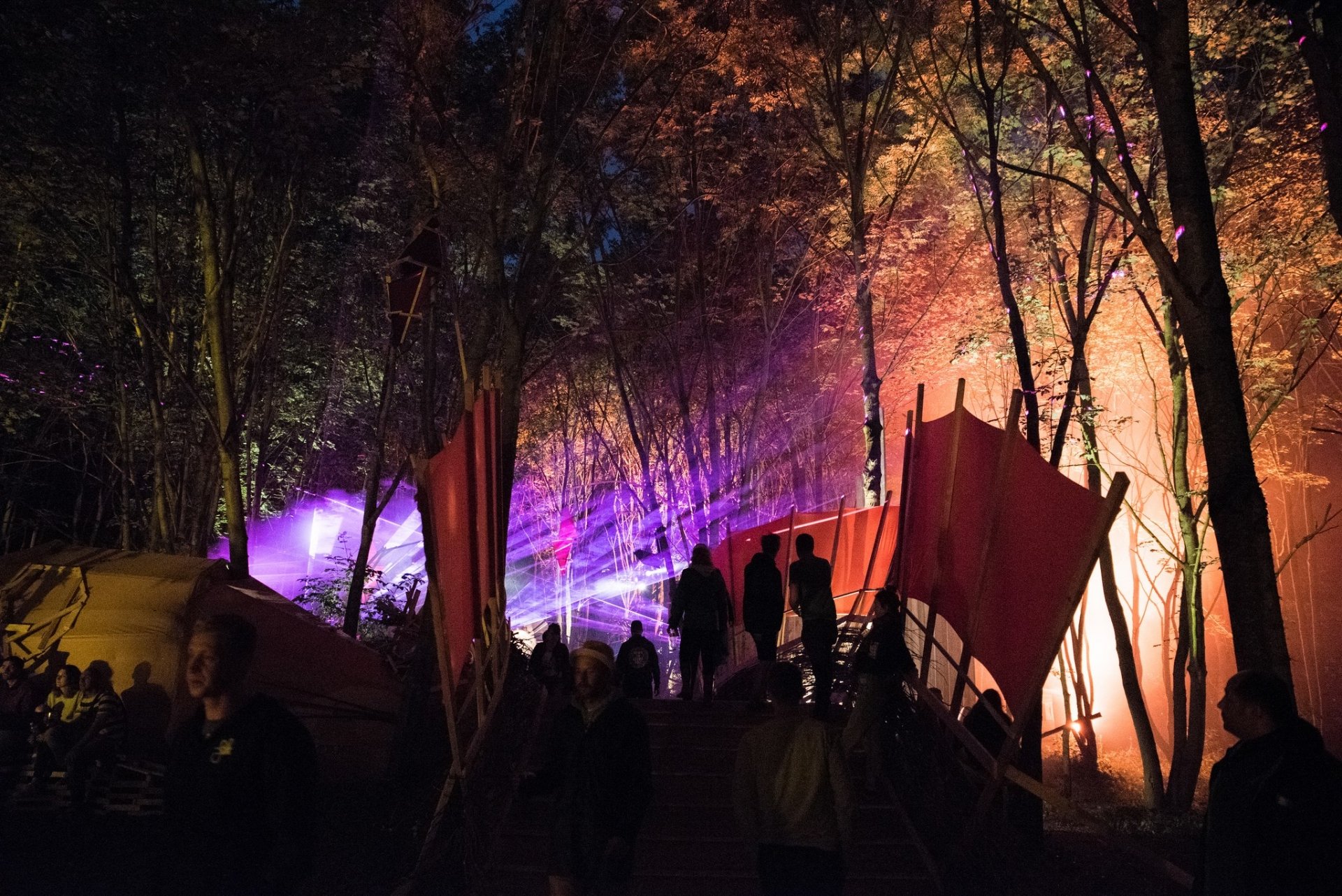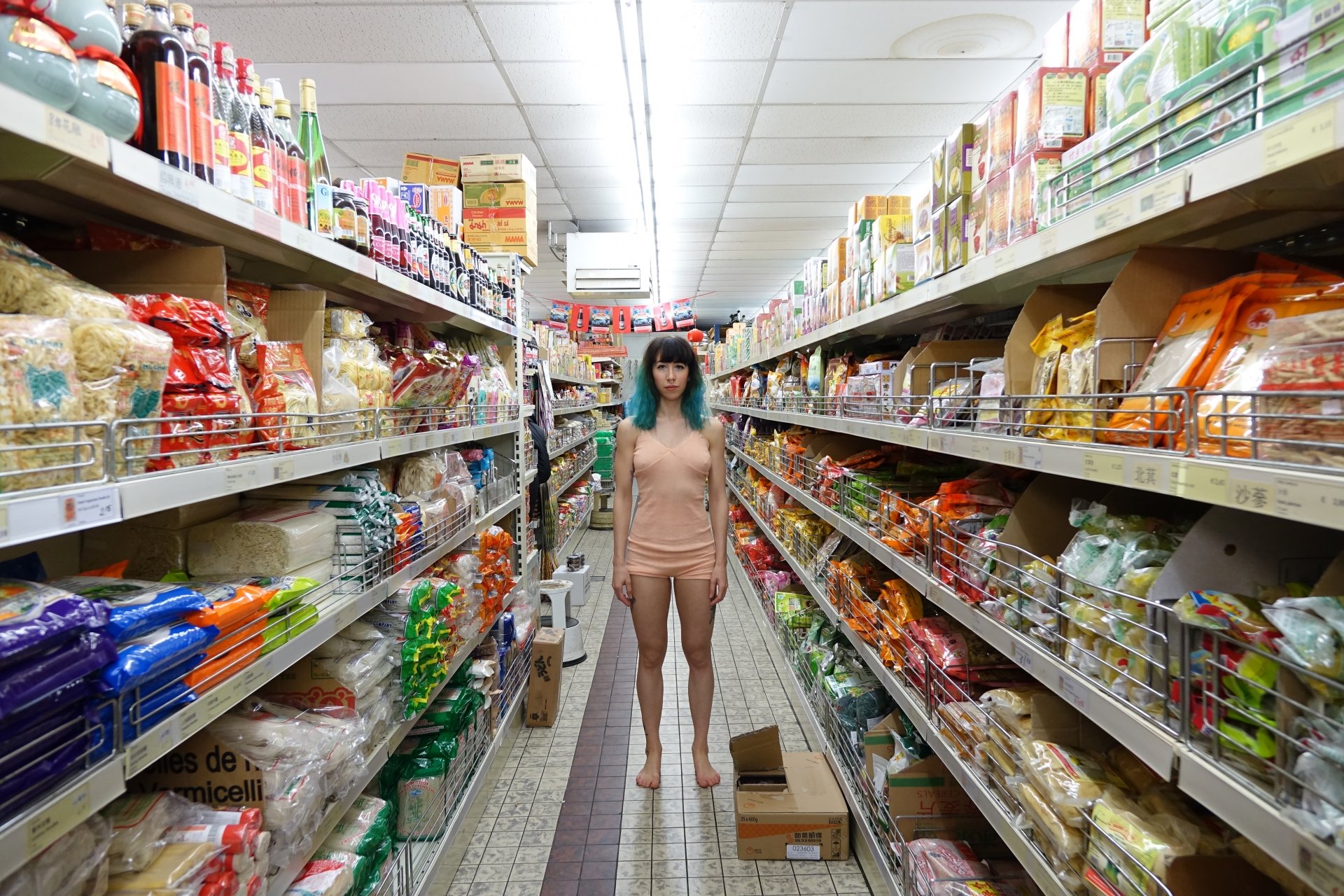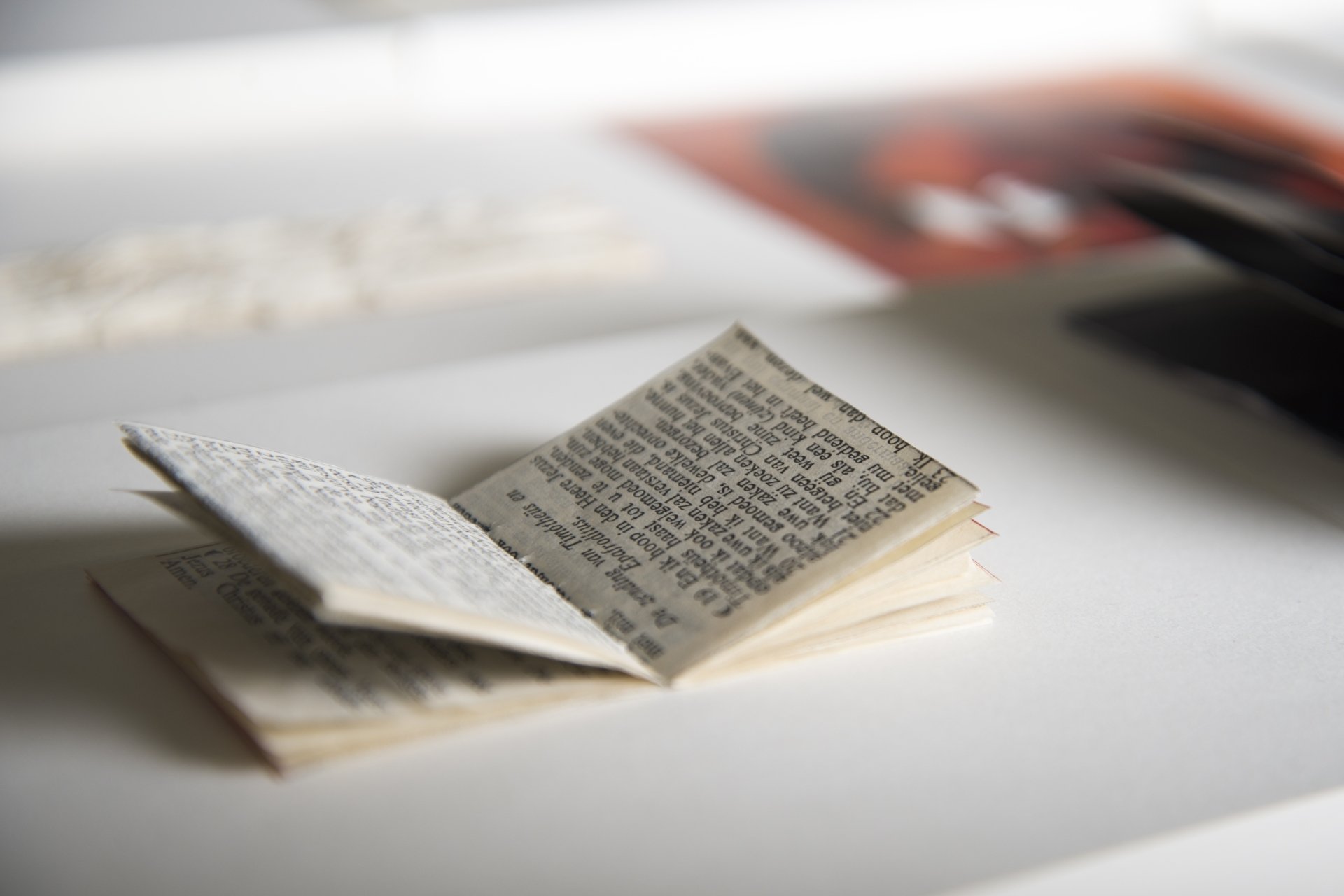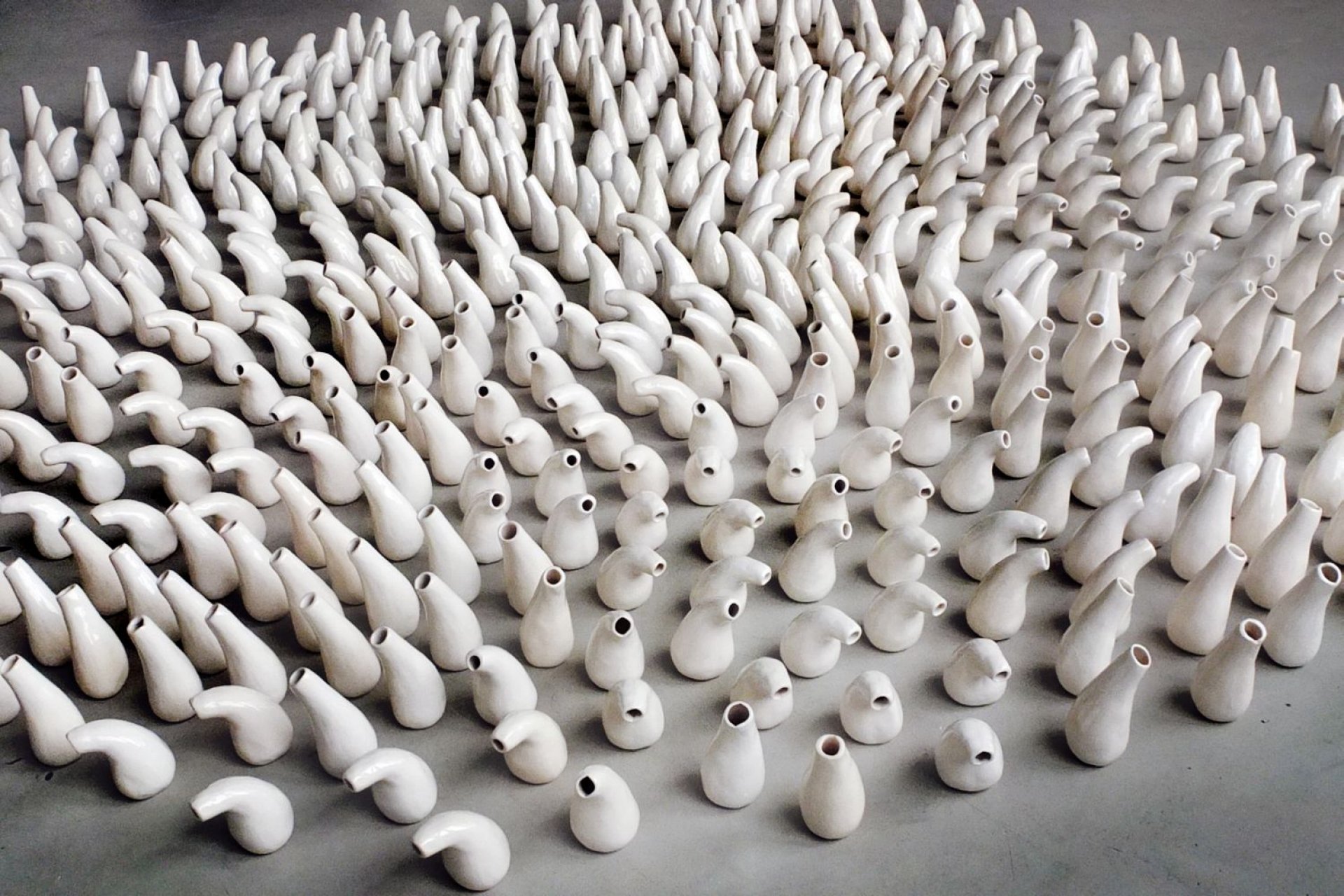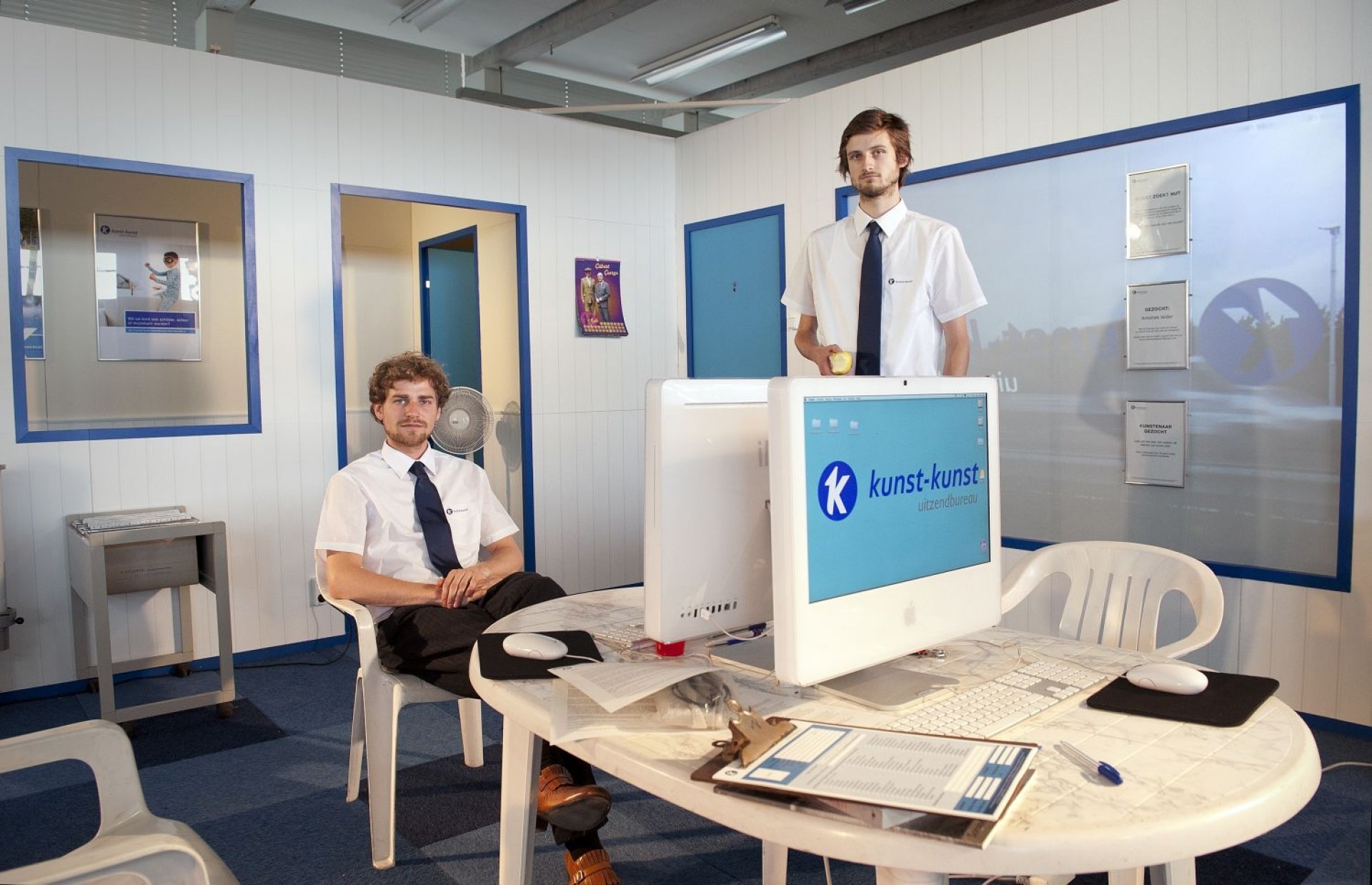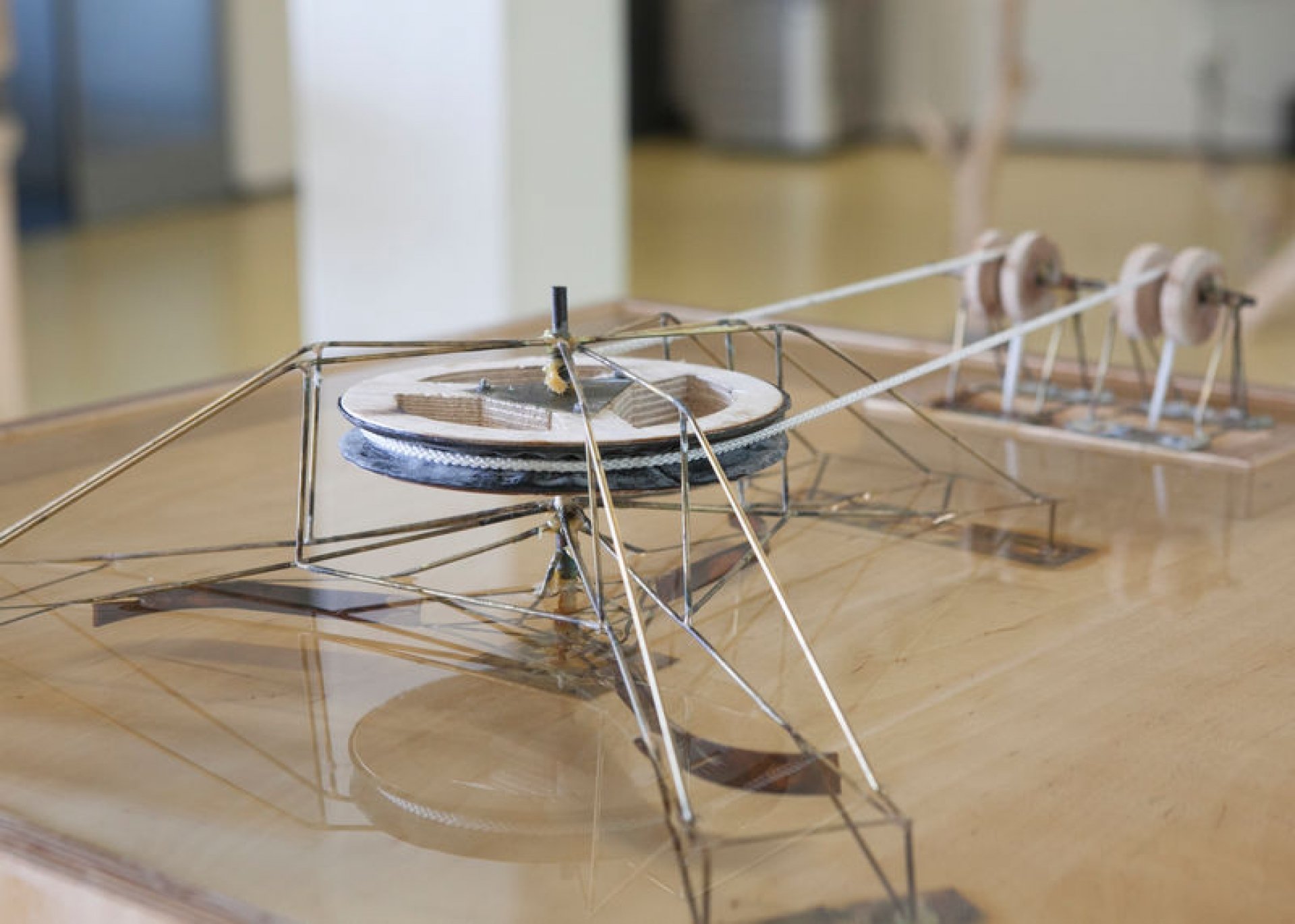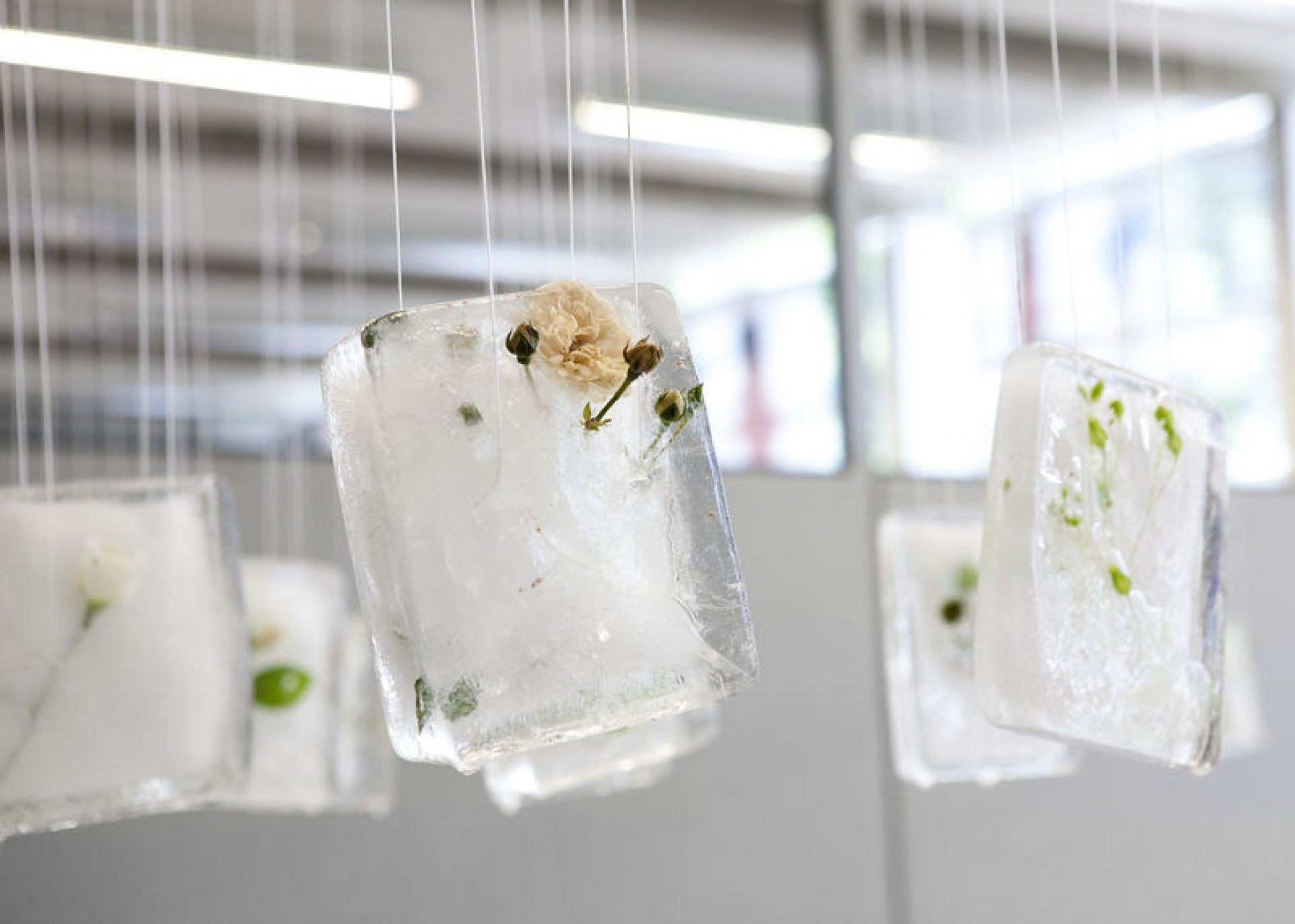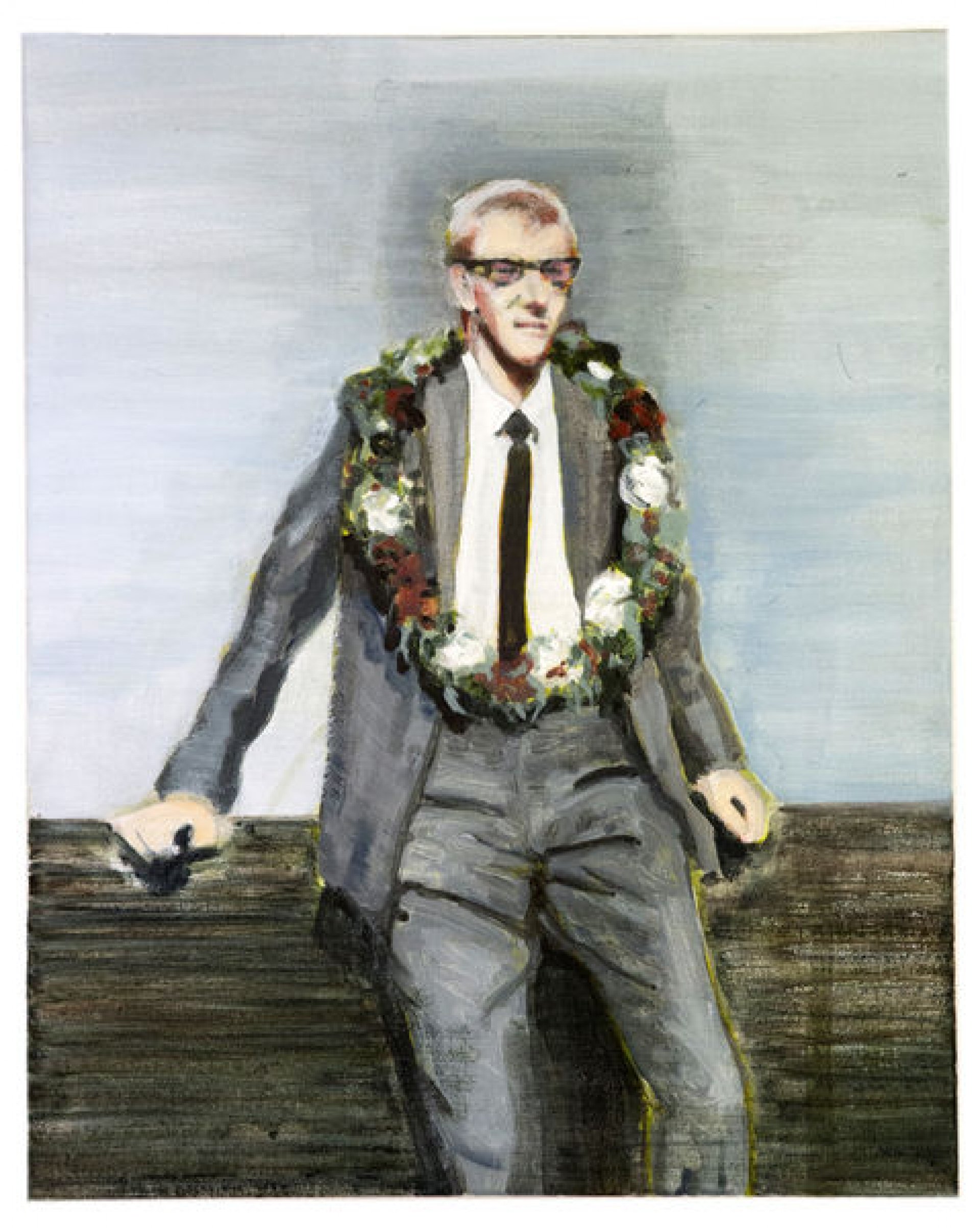Course
CourseThe Tailor-Made BA Fine Art and Design in Zwolle allows you to obtain a full teaching qualification in about two years. To this end, you take a tailor-made teacher training course that prepares you for teaching by means of teaching methodology, internships and more. In addition, you will go into art theory in depth.
You are trained as an artist educator who brings their own artistry and teaching together. You bring others into contact with art and design, even people for whom that is not necessarily a matter of course. You stimulate them to create and to develop their own talent, and link up with personal and social questions. You let them experience the difference that art can make and what it is like to express what occupies you.
After the course you have a broad teaching qualification. This means that you are qualified to:
- teach at all levels of secondary education, MBO (secondary vocational education), HBO (higher professional education) and primary education
- give classes in fine art subjects as well as in the subjects of Culture and Arts, and general art
In addition, this course trains you to work outside education, for example at cultural institutions. You can also set up a practice in education in arts as an independent entrepreneur (after registering with the Chamber of Commerce).
For whom?
The tailor-made study programme of Fine Art and Design in Education Arnhem is especially meant for:
- Autonomous visual artists with a completed university of the arts education;
- Design graduates and designers (e.g. graphic designers, fashion designers and product designers);
- Teachers with a second-level qualification in drawing, handicrafts or textile design
Tailor-made course curriculum
You take a tailor-made programme that is geared to your preparatory training. During the intake interview you will already receive an indication of possible exemptions. At the start of your studies, these will be determined on the basis of your CV and a portfolio presentation. Your educational programme depends on your background and experience, but is based on a core curriculum of theoretical and educational subjects taken in study groups of fifteen to twenty people. On average, you spend twenty-five to thirty hours a week on your studies, including homework and internships.
You study together with students of different ages and backgrounds, with the key similarity that everyone has completed a course to become an artist or a designer. This diversity of experience, training and artistic practices adds an extra dimension to the study. In a few cases you take subjects from the four-year part-time course, but for the most part you participate in a teaching programme that is specifically part of the Tailor-Made Fine Art and Design in Education course.
Class days of the course are Tuesdays and Fridays from 9:15 a.m. tot 4:30 p.m. Internships are possible on the class days referred to and are arranged through the internship agency.
Costs
If you have not previously taken a teacher training course or a course in health care, in most cases you will pay the €2143 statutory tuition. Use the ArtEZ tuition guide to easily calculate whether this rate applies to you.
In addition to the tuition, please allow for book fees, material costs and money for excursions. As a part-time student, you can apply to DUO for an allowance to cover your teacher training costs. If you are already working in education, you may be eligible for a teacher scholarship. For any allowances, please also consult the websites of DUO (Education Executive Agency), the tax authorities and ArtEZ.
What do you learn in the Tailor-Made BA Fine Art and Design in Education?
The professional field you will enter after graduation as a fine art teacher is broad. During the course you will therefore increasingly follow your own path.
The course curriculum focuses on the domains of theory and education, with subjects in the field of didactics of visual arts subjects, didactics of Culture and Arts and General Art, Psychology, Pedagogy and Educational Science, Philosophy, Cultural History, Art Theory and Contemporary Art. You gain knowledge about learning, special target groups and social psychology, but also about developing lessons, teaching materials and methods. In addition, you immerse yourself in the role and position of art and design in society. You question your own position, study other makers and immerse yourself in trends. In internships, you learn how to work as a teacher with different target groups in and outside education. The course curriculum offers a broad and in-depth basis, with more and more opportunities to adjust the subjects to your personal preferences.
The individual graduation process of the Art in Education course consists of a theoretical study and a final internship. You can organise this internship entirely as a school internship, but you can also gain experience in extramural art education.
Internships
Internship experiences at this teacher training course form an important part of your professional training. During an internship, all the skills from the job profile come together, and the knowledge you acquire during the course falls into place: you get the opportunity to actually apply what you have learned. You will find out which work setting suits you, which target groups you would like to work with and your own views on education and art education. In this way you gradually develop into the artist educator you want to be.
School internships range from primary and general secondary education to secondary vocational education (MBO); settings for non-school internships include museums, festivals, publishers and arts centres. As a course, we have extensive contacts with the professional field and are therefore able to offer good internships.
Extracurricular activities
The Tailor-Made BA Fine Art and Design in Education offers room to undertake all kinds of other activities in addition to the ‘regular’ components of the course, organised by the course and the students themselves. For example, excursions, lectures, debates, professional symposia, exhibitions, a fair like Unfair and learning to write for the DBKV-Magazine. These activities are not about gaining credits. The focus is on responding to current events, taking the initiative, broadening your perspective and presenting yourself to the outside world.
Academic career counselling
In addition to the lessons you follow, we also look more comprehensively at your development in your studies and the choices you make, for example during the internships. Your academic career advisors and teachers will help you meet the challenges you face along the way.
Facilities
The academy has well-equipped workshops. There are workshop assistants in all the workshops.
Independent entrepreneur?
Basic knowledge of entrepreneurship is offered during the Art Economy workshops.
Studying in Arnhem
You can find more information about studying in Arnhem here.
